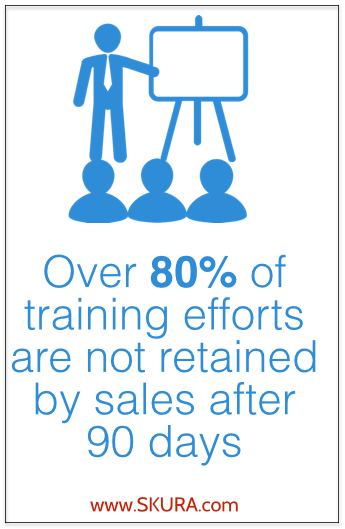The effective sales coach can improve ROI by being present and nurturing their team of reps. If you go and ask a Sales Rep about whether their Sales Manager(s) embody these characteristics, you’ll probably hear a laugh. Unfortunately, more often than not, Sales Reps are stuck under the thumb of the following ineffective Sales Manager archetypes.
The hothead manager storms into reps’ offices when a crisis hits. They have browbeaten every rep into submission. This manager is the Bobby Knight of sales, and everyone lives in fear of his or her presence.
The judgmental manager won’t throw tantrum, but he or she will always have a snide remark or a scolding in store for Reps when they slip up. This manager acts a judge and puts the Reps on trial for their shortcomings. Their Reps accumulate and carry grievances with them.
The platitude manager might post signs that say, “every failure is a new opportunity!” and, “sell like a champion today!” above doorways and computers, but then fails to offer any type of practical steps for success. He or she belongs in the inspirational speaking arena, not on the sales floor. When their Reps need real advice, they turn to a search engine.
These three sales managers are missing two key factors in coaching: right timing and right target. Here’s how to develop both.
The hothead and the judgmental managers only coach when bad things happen. Imagine if an athletic coach adopted this method! There would be no practices, no scrimmages and no practiced plays. The team would be built around poor game performances and locker-room blowups.
Ideally, a Sales Manager will schedule two to three hours for coaching each rep individually, every week. The most effective sales coaches build a cadence with the reps so that they know when to expect a coaching session. This way, the relationship forms more naturally, and includes praise for success, understanding of failure, and hope for help during the next coaching session.
The platitude-style manager is completely ignoring the necessity of finding the right target for coaching. Inspirational quotes are necessary sometimes, for some people, but a can-do attitude simply doesn’t serve every rep, every day. Sales coaching is not one size fits all. Successful managers identify who needs help so that their message is heard and used.
Most effective-coaches find that there is little value in coaching the very worst or the very best performers. It’s frequently the middle performers who are in the greatest need and can respond with the greatest improvements.

Knowing What to Coach
Regardless of whether you’re an excellent Sales Manager with tried and true coaching strategies, or an up and comer with some of the traits detailed above, knowing WHAT to train can be equally as difficult as knowing HOW to train.
As the sales process continues to change in the face of digital content marketing, CLM platforms (Closed Loop Marketing) offer an enticing opportunity to merge the benefits of sales content management with the strengths of sales analytics software.
This is achieved by applying a CLM platform technique known as CRM-integration. CRM-integration is the process of tying back the consumption of content from a rep, to the results of that content.
As reps send content to buyers, or present them in real time, the impact of these interactions nurture the lead to the point of sale. The practices of your top reps can be analyzed and coached to the bulk of middle-performers.
Do your Sales Managers know WHAT to coach, it could be a matter of technique or personality, or, they may simply be missing the sales enablement tools they need to train effectively.











